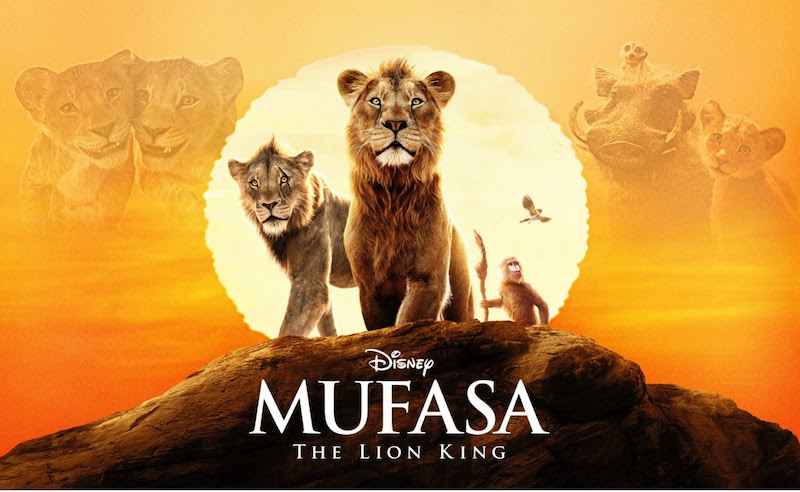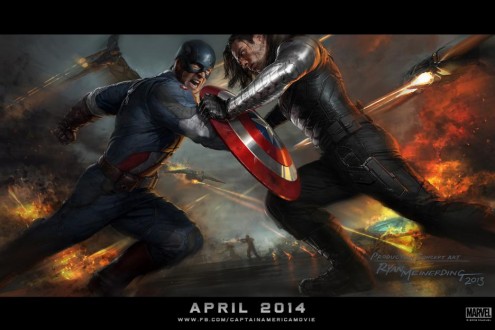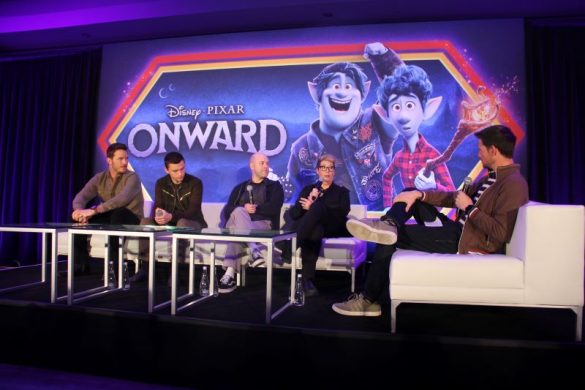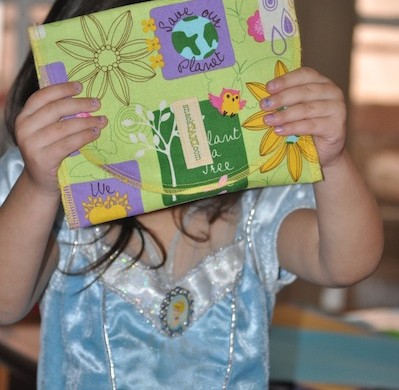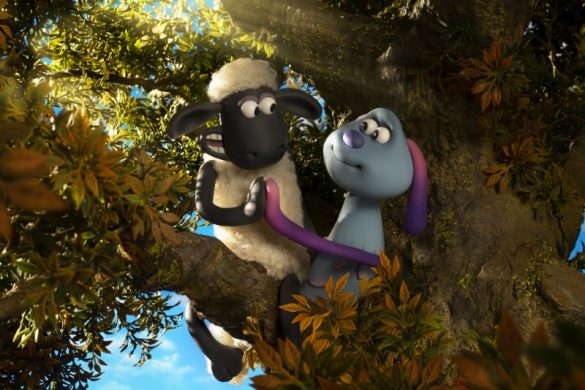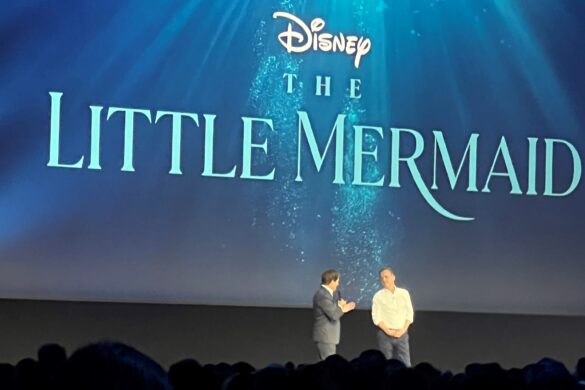“Mufasa: The Lion King” expands iconic tale by offering a look back at a familiar story before Simba became king with breathtaking visuals that serve as a visual feast. However, while the prequel dazzles in its aesthetic, it doesn’t quite capture the emotional depth or inventiveness of its predecessors.

That said, the film does offer moments of beauty and potential, particularly in the journey of its titular hero as he strives to become king. Despite the film’s inevitable outcome, director Barry Jenkins brings a subtle richness to Mufasa’s backstory, giving the narrative an intriguing layer of complexity.
In both the 1994 animated classic and the 2019 photorealistic remake, Mufasa (voiced by the legendary James Earl Jones) imparts timeless wisdom to his son Simba: “Look at the stars. The great kings of the past look down on us from those stars… And so will I.” This line once led many to believe that Mufasa was born a king, inheriting his title just as kings before him had done. Yet, the prequel—which unfolds largely through flashbacks—turns out to be less about the birthright of kingship and more about the misfits searching for their purpose, with a dangerous villain challenging their unity.
As a prequel, “Mufasa: The Lion King” hinges on the audience’s interest in learning more about the title would be king, Simba’s father. Jeff Nathanson’s script follows a familiar formula, leveraging the same music and storytelling that made both Lion King films so successful. The film is structured to delve into how Mufasa became the king we know, revealing that his path was not one of inheritance but one of personal growth, empathy, and a deep connection with the world around him. While the coming-of-age journey of the enigmatic Mufasa enriches the lore and allows audiences to connect with the characters, it’s still rooted in the framework of a franchise that already has a dedicated fan base.
Although Nathanson’s script doesn’t leave much to the imagination, Jenkins’ direction adds the depth and weight the story needs. His vision and approach to characters experiencing significant personal change elevate the film.
The film opens with Simba (Donald Glover) preparing for the arrival of a newborn cub with Nala (Beyoncé Knowles). While Kiara (Blue Ivy Carter) is eager to accompany him, Simba instructs her to stay behind, leaving the comedic duo Timon (Billy Eichner) and Pumbaa (Seth Rogen) to babysit. As a storm looms, the pair tries—and fails—to ease Kiara’s fears. Thankfully, Rafiki (John Kani) distracts Kiara with a tale of Mufasa.
As a cub, Mufasa (Braelyn Rankins) is marked by a physicality and spirit that hint at the greatness to come. Though his homeland faces a harsh drought, Mufasa’s parents, Afia (Anika Noni Rose) and Masego (Keith David), share hopeful tales of Milelea place beyond the clouds. But their dreams are shattered when a flash flood separates young Mufasa from his family.
Alone, Mufasa is rescued by Taka (Theo Somolu), another cub from a noble bloodline. The two become fast friends, though the pride’s respected elder, Obasi (Lennie James), is wary of outsiders joining the pride—especially if they threaten Taka’s royal standing. Forced to live with Eshe (Thandiwe Newton), the pride’s matriarch, Mufasa learns to hunt and navigate his new world while Taka is groomed for leadership. Yet, Obasi’s teachings—filled with suspicion, deception, and idleness—aren’t the qualities that will make Taka a great king.
As the cubs grow, the divide between them deepens. And older Taka (Kelvin Harrison Jr.) grows increasingly bitter as Mufasa (Aaron Pierre) matures and shows more potential as a leader. When a dangerous pride of lions, led by Kiros (Mads Mikkelsen) attacks during a hunt, Obasi makes a painful choice to send Taka away, assigning Mufasa the task of protecting his brother, though still favoring Taka for the royal lineage. A song about the brothers leaving behind their old lives signifies the emotional turning point.
The film’s journey through Africa is visually rich, with cinematographer James Laxton’s work bringing to life various landscapes. The photorealistic animation adds layers of tactile beauty to the world, making every scene feel real, despite the fact it’s all digitally crafted. It’s a testament to the skill behind the film’s stunning visuals.
Yet, “Mufasa: The Lion King” still suffers from a case of “prequelitis.” While it’s fascinating to see how Mufasa’s origins are brought to the screen, the film’s predictability somewhat undermines its impact. Knowing the eventual tragic fate of Mufasa and the rise of Taka (later Scar) weighs on the viewer. Certain visual callbacks to the original, like Taka’s claws digging into Mufasa’s paws, feel forced and only serve to remind us of the betrayal to come—something the story doesn’t need to hammer home.
Despite these narrative constraints, the film thrives due to its strong voice cast and Jenkins’ direction. The dynamic between Mufasa and Taka resonates with Shakespearean echoes, and the performances from Pierre and Harrison Jr. help ground the emotional core of the film. Tiffany Boone also shines as Sarabi, bringing a bold yet vulnerable quality to the character.
Also lacking in musical impact of Lin Manuel-Miranda’s seven original songs. Though some like “I’ve Always Wanted a Brother” and “Tell Me It’s You” have their moments, they aren’t exactly the ear worms that we’ve grow accustomed to hearing from the EGOT winner. Even a villain song like “Bye-Bye” lacks the power to establish a villain. For the most part, these songs don’t push the narrative like most songs from Disney animated musicals do.
Ultimately, Mufasa: The Lion King offers an enjoyable exploration of the brotherhood between Mufasa and Taka, shedding light on how the former became the king we know and how the latter transformed into the villainous Scar. While it may not have the same emotional punch as its predecessors and its music and story may not feel like the king of all tales, Jenkins’ vision and the cast’s strong vocal performances carry the film through its familiar terrain, delivering a story of self-discovery, family, and empathy.
7/10
Here are bonus features you can expect to see on the digital verison:
Full Length Sing-Along – Sing along with your favorite songs while watching the movie with on-screen lyrics.
Finding Milele: The Making of Mufasa: The Lion King – Join visionary director Barry Jenkins and the cast of Mufasa: The Lion King on an epic journey to create a brand-new chapter in the story of The Lion King. Explore how the story was developed and the technology used to make Mufasa’s world come to life.
Songs of the Savanna – Director Barry Jenkins and songwriter Lin-Manuel Miranda sit down to discuss the excitement and challenges of creating the music for Mufasa: The Lion King.
Ostrich Eggs with Timon & Pumbaa – Timon and Pumbaa reveal fun facts and some of the hidden references in the movie.
Outtakes – Watch the cast having fun in the recording booth.
Deleted Scenes:
Who’s the Mole Rat?
What Do You Feel in There?
Have Faith in Her
Taka’s Dream
Music Video: “I Always Wanted a Brother” – Join Lin-Manuel Miranda and the cast of Mufasa: The Lion King as they perform “I Always Wanted A Brother” backstage at a film shoot.
Song Selections:
Milele (First Rain)
I Always Wanted a Brother
Bye Bye
We Go Together
Tell Me It’s You
Brother Betrayed
Protect the Pride – Learn how Disney and The Lion Recovery Fund are working to protect the pride and conserve lions in the wild.

